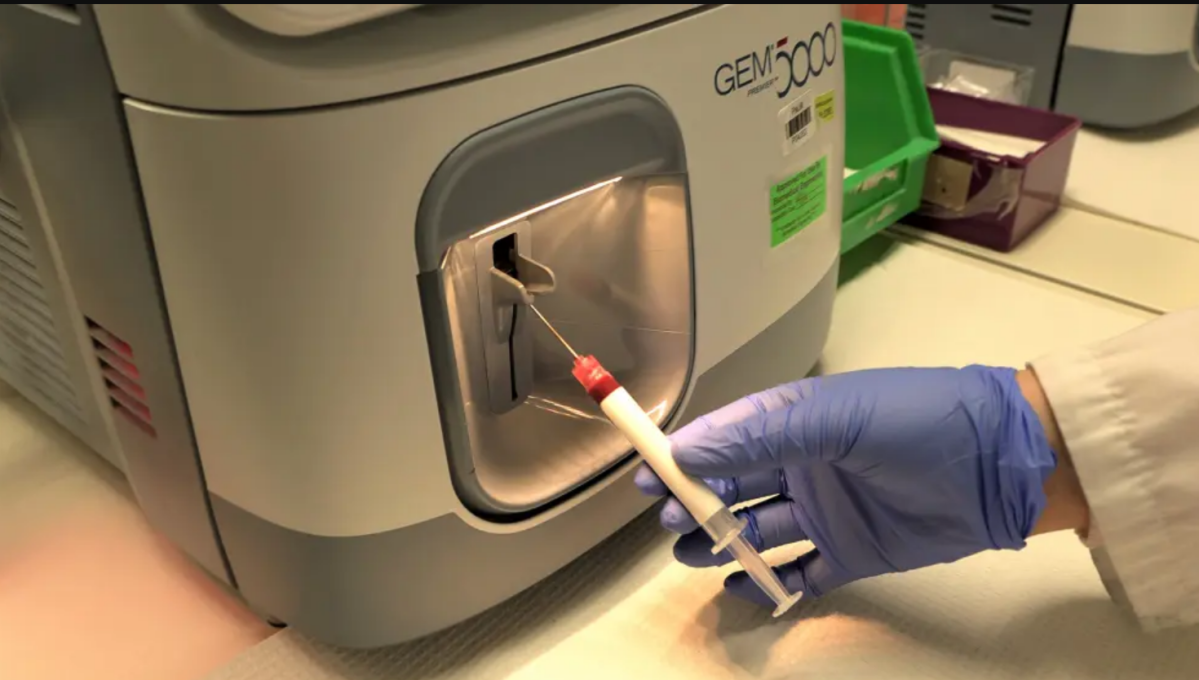It’s been over three years since the World Health Organization (WHO) declared COVID-19 a global pandemic, and now a group of researchers at Lawson Health Research Institute in London, Ont., might have found the key to better understanding its long-term effects.

A new study published by the local research team in the Journal of Translational Medicine showcases their discovery of unique patterns of blood plasma proteins in suspected long COVID patients, saying it could act as a potential drug target to improve patient outcomes.
Currently, around 10 to 20 per cent of people with a confirmed case of the virus will get long COVID.
“Those patients experience a wide variety of symptoms, which may include fatigue, brain fog and difficulty breathing,” says Dr. Douglas Fraser, Lawson scientist and critical care physician at London Health Sciences Centre (LHSC), adding that these symptoms can last for years.
“Long COVID is a very real thing,” he stressed. “It’s got some very definable signalling pathways, and now we’ve got some ideas of some potential drug therapies that can help these people out moving forward.”
Referred to as “the plasma proteome,” these proteins being studied are found in blood plasma and “are released by cells that often play an important role in the body’s immune response to viruses,” according to the study.
Fraser explained that the research team is studying how those proteins adapt and change in long COVID.
As part of the study, blood plasma samples were collected from long COVID outpatients through the Post-Acute COVID-19 Program at St. Joseph’s Hospital.
“These were patients that were over four months out from having their acute COVID-19 infection,” said Fraser, who is also a professor at Western University.
These samples were analyzed in comparison with “acutely ill” COVID inpatients at LHSC, as well as compared with a group of healthy volunteers.
“We looked at over 3,000 proteins (that) we measured from their blood plasma at the same time with multiple patients,” he said.
- ‘Unprofessional’: Couple waits hours at a hospital to see a doctor who wasn’t there
- N.S. mom calls for better ultrasound access after private clinic reveals twins
- 3 women diagnosed with HIV after ‘vampire facials’ at unlicensed U.S. spa
- Solar eclipse eye damage: More than 160 cases reported in Ontario, Quebec
“We used a novel bioinformatic pipeline, a form of artificial intelligence (AI), to then analyze the proteins to determine the specific changes that occur in long COVID,” added Cristiana Losef, research analyst at Children’s Health Research Institute (CHRI), a program of Lawson.
According to the study, the team discovered that people with suspected long COVID have “prolonged inflammation associated with changes in their immune cells and blood vessels.” Researchers stated that these changes may lead to problems in specific organs, such as the brain and the heart.
Dr. Michael Knauer, an associate scientist at Lawson, said “the saved blood plasma samples that we are using helped us determine the long-term responses to COVID-19; serial blood plasma samples from individuals that had a COVID-19 infection and now presumed long COVID will help us determine how proteins are changing over time.”
“We can start to look at the signalling pathways with regards to the drugs that are already out there and already available and start to identify some of those drugs that might be useful for treating these patients,” Fraser added. “With this understanding, the identified drugs may be used in future long COVID clinical trials.”








Comments